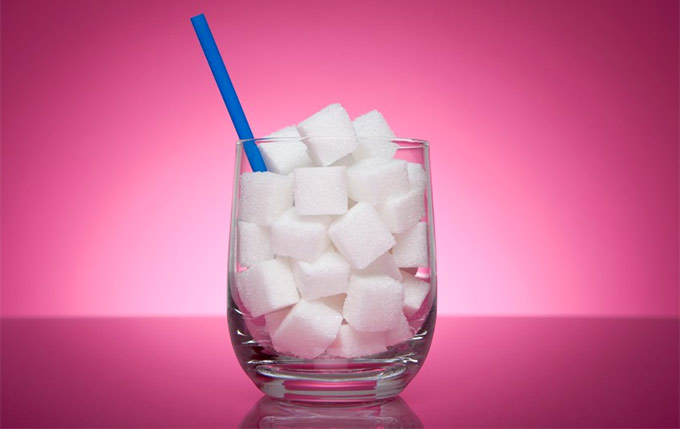Chances are most of us have reached for a ginger ale when we’re queasy, which doesn’t seem like a bad idea! After all, ginger is well known for its ability to calm flu like symptoms. But, what many don’t know is that all of the added sugar in ginger ale (and a few other common remedies) does a lot more harm than good. In this article Dr. Bristow explains the reactions that take place in our body after we consume sugar, and explores a study that outlines the relationship between high sugar intake and delayed immune responses.
When you’re sick or have an infection, a key function of your immune system kicks in gear: neutrophils to the rescue! These white blood cells are often the first responder to an inflamed and irritated area (like a sore throat) and will literally gobble up microbes. These important cells also start an immune system cascade signalling your body to send in the troops.
Well, researchers took a look at how these key immune cells responded to sugar. Their findings are startling: after consuming 100 grams of sugar, a person’s neutrophils’ ability to gobble up microbes is significantly reduced for up to five hours! That is a lot of crucial healing time being suppressed by sugar! And the research showed that the source and the type of sugar was unimportant; whether it was straight sugar (glucose), or orange juice (fructose), or honey, it all had the same effect: it reduces the effectiveness of the immune system.

What does 100 grams of sugar look like?
A can of ginger ale–a common stomach flu favourite–contains 32 grams of sugar, for example. A standard glass of orange juice contains roughly 50 grams of sugar. And so you can see, it adds up quickly.
Interestingly, the researchers also found that fasting has a significantly positive effect on the functioning of these cells, increasing their gobbling speed.
The key takeaway from this is that when you’re getting sick or when you are already sick, stay away from sugar.
Also, if you don’t have much of an appetite, do not force down food. Eat when you feel hungry, and stay hydrated. Nourish your body with foods that are full of vitamins and minerals by eating nutrient-dense food like a homemade bone broth soup. Real bone broth is chock-full of minerals and collagen, which are incredibly useful when you are sick. Use the stock to make a hearty vegetable soup.
To stay hydrated, make your own electrolyte formula with lemon, concentrated mineral drops in a base of herbal tea. For sore throats, I love Traditional Medicinals‘ Throat Coat tea, and their Echinacea Plus with Elderberry is also delicious and effective.
I hope this has been helpful. If you’re sick, go boil some bones and get well soon! If you are sick and think you may need some additional help in recovering, consider booking an appointment with me. You can do so here, or you call us at 403-452-0029.
